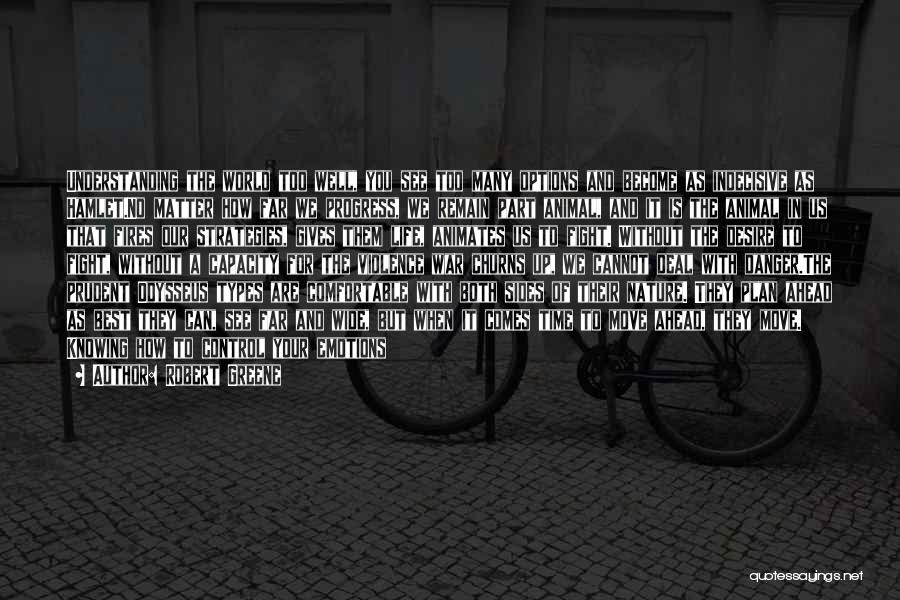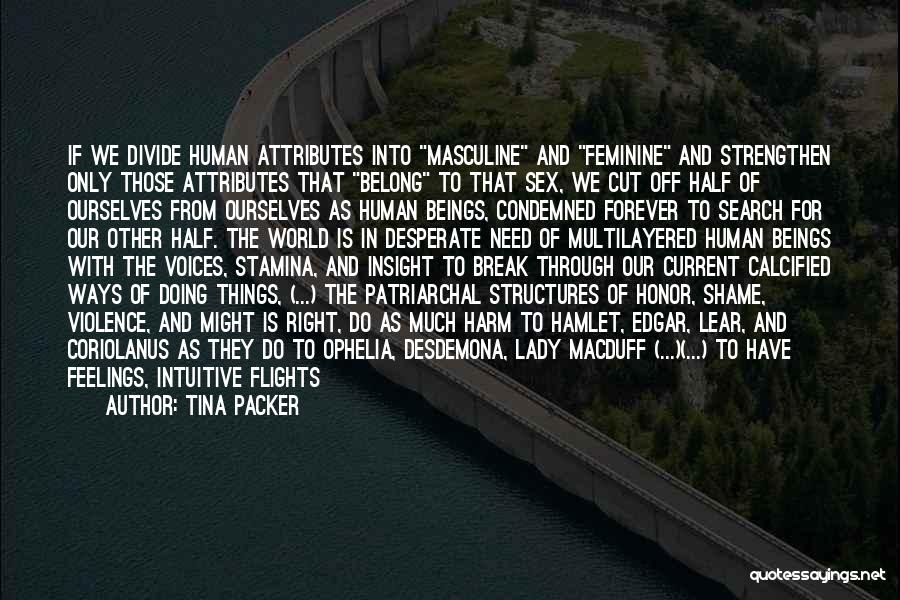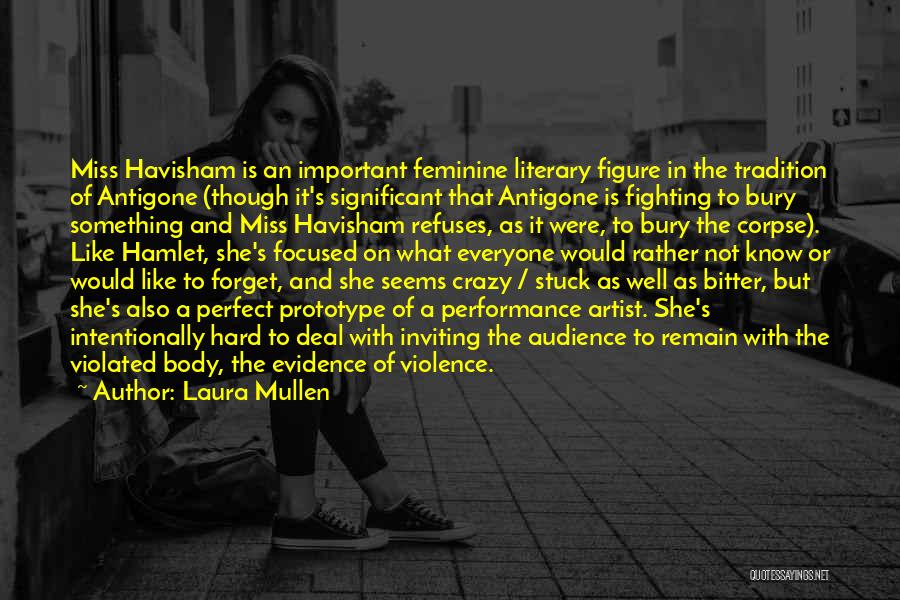Quotes & Sayings About Violence In Hamlet
Enjoy reading and share 3 famous quotes about Violence In Hamlet with everyone.
Top Violence In Hamlet Quotes

Understanding the world too well, you see too many options and become as indecisive as Hamlet.
No matter how far we progress, we remain part animal, and it is the animal in us that fires our strategies, gives them life, animates us to fight. Without the desire to fight, without a capacity for the violence war churns up, we cannot deal with danger.
The prudent Odysseus types are comfortable with both sides of their nature. They plan ahead as best they can, see far and wide, but when it comes time to move ahead, they move. Knowing how to control your emotions means not repressing them completely but using them to their best effect. — Robert Greene

If we divide human attributes into "masculine" and "feminine" and strengthen only those attributes that "belong" to that sex, we cut off half of ourselves from ourselves as human beings, condemned forever to search for our other half. The world is in desperate need of multilayered human beings with the voices, stamina, and insight to break through our current calcified ways of doing things, (...) The patriarchal structures of honor, shame, violence, and might is right, do as much harm to Hamlet, Edgar, Lear, and Coriolanus as they do to Ophelia, Desdemona, Lady Macduff (...)
(...) To have feelings, intuitive flights of understanding, a desire to have knowledge of what is happening below the surface, to serve. These are often called "feminine" attributes, and it is true that many women in the plays possess them. But they also belong to Kent, Ferdinand, Florizel, Camillo, as well as the women. So they are not "feminine" attributes: they are human attributes. — Tina Packer

Miss Havisham is an important feminine literary figure in the tradition of Antigone (though it's significant that Antigone is fighting to bury something and Miss Havisham refuses, as it were, to bury the corpse). Like Hamlet, she's focused on what everyone would rather not know or would like to forget, and she seems crazy / stuck as well as bitter, but she's also a perfect prototype of a performance artist. She's intentionally hard to deal with inviting the audience to remain with the violated body, the evidence of violence. — Laura Mullen





